Introduction
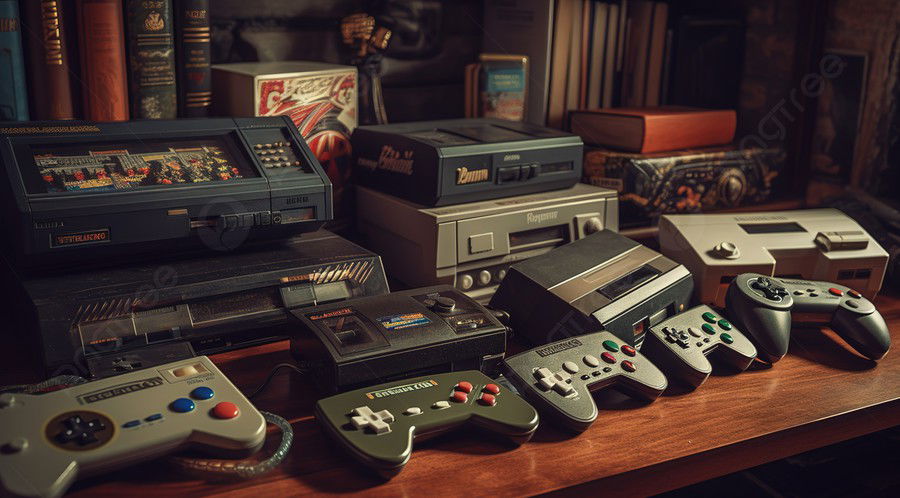
Who hasn’t had a favorite game which by some industry-related reason or disagreement between creator and company ended up forgotten? When the creator or even the fans want to keep a franchise’s legacy going but do not own the Copyright, they make what we call Spiritual Successors. Get to know ten of these sequels you might not even know had a predecessor!
1- Theme Hospital - Two Point Hospital
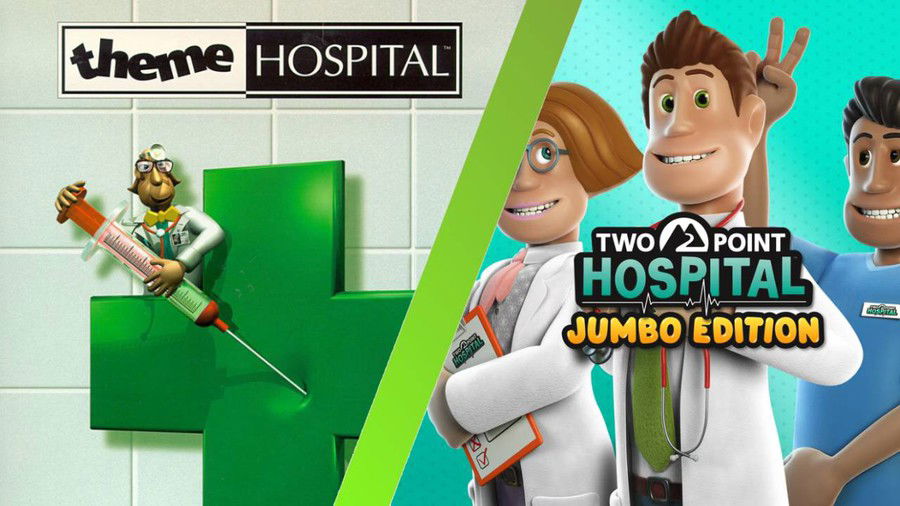
The enthusiastic fans of building and managing your own hospital empire in the old Bullfrog Productions game “Theme Hospital” felt orphaned from a game at the same level, since they didn’t get a sequel due to the termination of the team after the company was bought by Electronic Arts.
Produced by Gary Carr and Mark Webley, creators of Theme Hospital, Two Point Hospital came in 2018 to be a sequel to Theme Hospital. Keeping the humor and charm of the original, in Two Point Hospital you need to cure peculiar diseases such as “Light-Headedness” (where those who get sick literally have their heads turn into a lamp) while you manage your unusual clinic, using the mechanics which were kept the same, such as the diagnostic control rooms, wards and psychiatry.
To the lovers of management games, Theme Hospital and its successor Two Point Hospital offer a vast experience full of comedy and fun challenges.
2 - Prince of Persia - Assassin's Creed
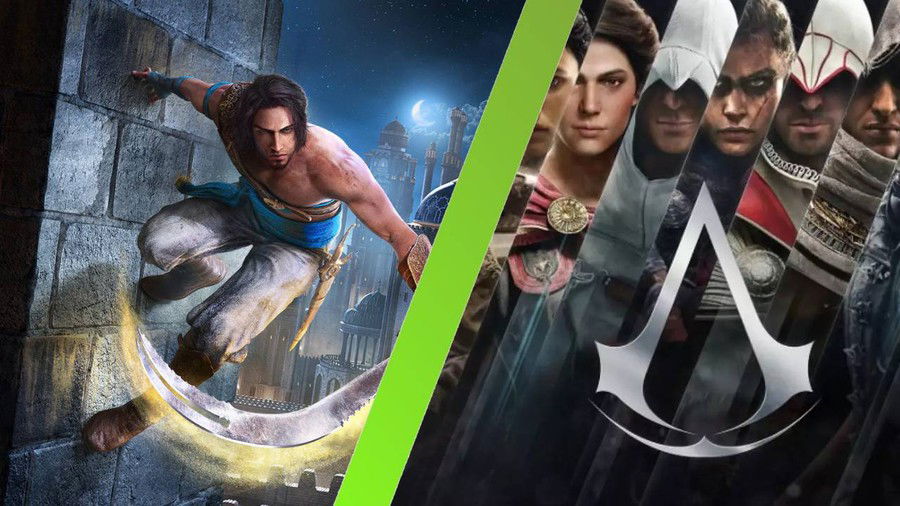
One of the most famous Ubisoft franchises, what many don’t know is that Assassin's Creed was a spiritual successor to Prince of Persia.
The company wanted to go in a more commercial direction regarding gameplay and mechanics which existed in Prince of Persia, as it is noticeable with the Parkour present in the predecessor and which was kept and extremely improved in Assassin’s Creed as the years passed.
Unlike Prince of Persia, which focused only in a historical theme, Assassins’s Creed explores several distinct historical events, encompassing every culture, famous historical figures such as Leonardo Da Vinci, Karl Marx and even Benjamin Franklin, which turned it into a sales success and conquered several fans all around the world
14 years after its last game (Prince of Persia: The Forgotten Sands), the franchise recently got a sequence which gave the gameplay a full reboot, similar to the first game.
This is a curious case where the company itself wanted to give a game a sequel by creating a new IP, which coexists with its predecessor in harmony.
3 - Donkey Kong - Kaze and the Wild Masks
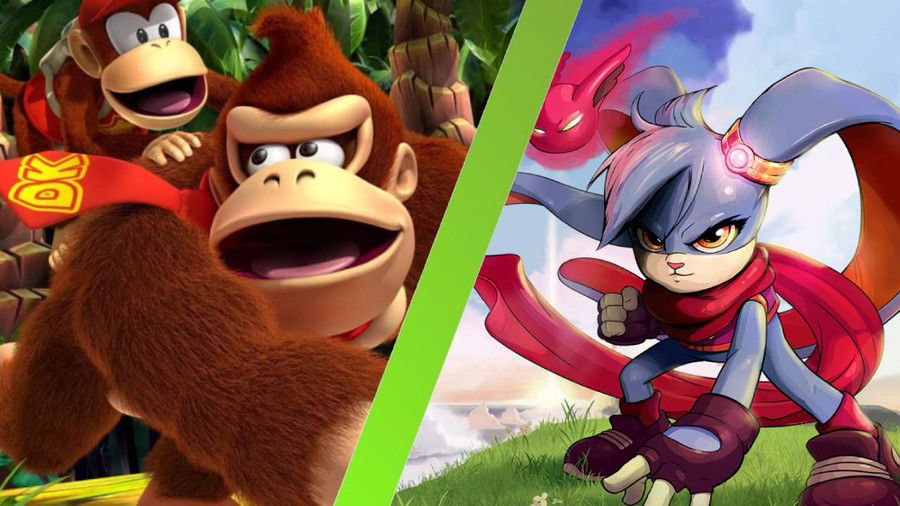
Donkey Kong was a Super Nintendo success, produced by Rare, which currently belongs to Microsoft Game Studios. The game continues to get sequels for the current Nintendo platforms, but this time being produced by Retro Studios.
Being a worldwide success among the Super Nintendo classics, the fans want the new sequels to pay homage to the classic games, and so, a Brazilian game studio developed a wonderful tribute and sequel to this gaming juggernaut: Kaze and the Wild Masks.
With the protagonist Kaze, you embark on a journey to break the curse which befell Crystal Island, having to find the Wild Masks so that you can invoke the power of the legendary guardians and defeat the villains.
In the game, you’ll find mechanics similar to those in Donkey Kong and even to other 90s games, such as collecting letters from the protagonist’s name, platform gameplay and secret places to explore.
We can consider Kaze and the Wild Masks as a love letter from the Brazilians to a classic game which left a mark upon the life of thousands of people, just like the next game in our list.
4 - Top Gear - Horizon Chase Turbo
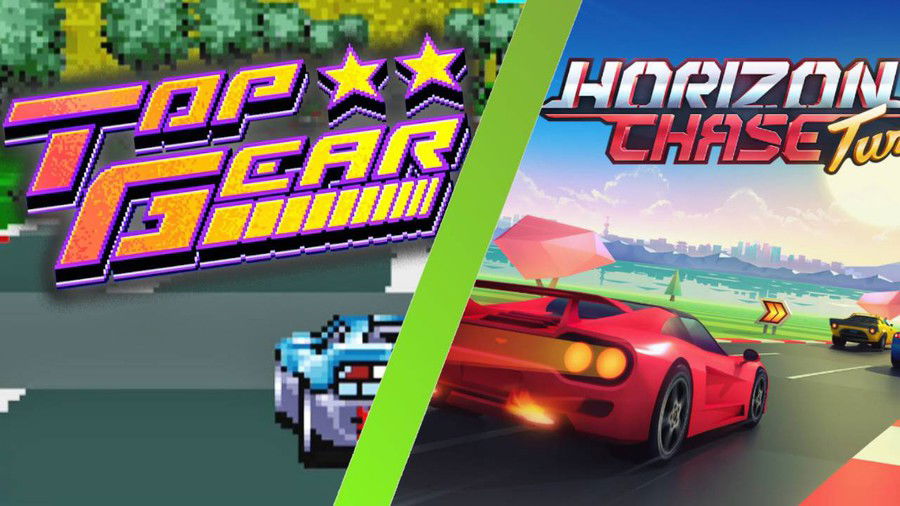
Top Gear was a racing game released in 1992 for the Super Nintendo. Developed by Kemco and with a soundtrack composed by Barry Leitch and Hiroyuki Masuno, which reached a high level of success, even becoming a challenge among guitarists to play the game’s opening song.
The game wasn’t a big success, being considered a generic racing game similar to others more famous at the time, but in Brazil, it left a mark on the childhood of countless people, creating an absurdly nostalgic feeling around it for Brazilian gamers.
Spurred on by this nostalgia and the passion for a game which was a part of Brazilian’s 90s kids childhoods, Aquiris Game Studio developed one of the best spiritual successors ever made: Horizon Chase Turbo.
The game kept all the essence from Top Gear, but with updated graphics and even well-known popular cars in Brazil. In addition to the well-made gameplay, to give it an extra touch of nostalgia, the soundtrack for Horizon Chase Turbo was composed by the same musician as Top Gear: Barry Leitch!
To the arcade and retro racing game enthusiasts, both are must-plays!
5 - Castlevania - Bloodstained

This one is probably the most famous and well-received spiritual successor. Castlevania was a milestone in the gaming industry, becoming a reference alongside Metroid to the consolidation of an entire new genre: Metroidvania.
Produced by Konami, Castlevania began its franchise in 1986, but became an industry titan after Koji Igarashi joined the team, turning it into a non-linear exploration game with RPG elements. This game received the name Castlevania - Symphony of the Night. Released initially to PS One, it was very well received, becoming a console classic.
Igarashi also worked on other titles such as Castlevania Harmony of Despair, but the franchise took another route, leaning towards hack’n’slash gameplay, and he left the company.
With fans hungry for a sequel to the classic Symphony of the Night and Igarashi’s own passion for the game, he resurfaced with the help of a kickstarter campaign, introducing Bloodstained. The crowdfunding was a success, and he made a new game with everything that captivated players in the original Castlevania titles: Character visuals, ambience, gameplay, even the soundtrack, composed by Michiru Yamane just like in SotN.
Originally released in two games: Bloodstained Curse of the Moon (a throwback to 8-bit classics) and Ritual of the Night, which was more similar to SotN, Bloodstained in an example of a very successful crowdfunding campaign, the sequel honored its predecessor and was very well liked by fans, unlike the next game in our list.
6 - Megaman - Mighty N°9
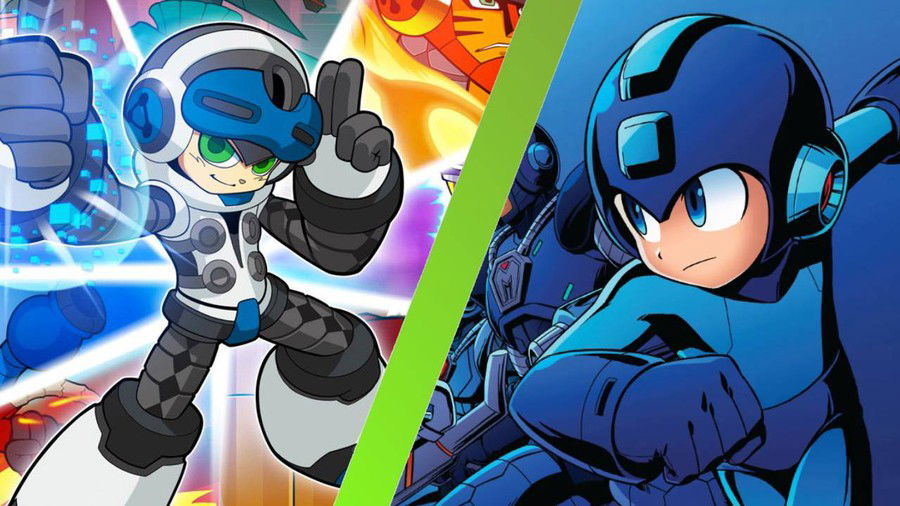
Megaman was a 90s hit. Being a challenging platformer and an extremely charismatic character, it conquered thousands of fans all over the world, both because of the games and their animations.
After going years without a sequel, the series' own original creator came up with a kickstarter campaign to fund a new project called Mighty N° 9. Fans spared no effort to help the project out, collecting over four million dollars.
Ambitious, Keiji Inafune even promised an animation with the new game’s protagonist. To everyone's disappointment, though, people didn’t like it.
With graphics considered antiquated for their time, with no innovations and a mediocre gameplay, fans felt offended by the project, on top of the animation never being released.
During the same period in which this game came out, Capcom released Megaman 11, which, contrary to its spiritual successor, was a big hit and pleased everyone.
Sadly, not all spiritual successors end up honoring the legacies of their references, even if made by their original creators.
7 - Earthbound - Undertale
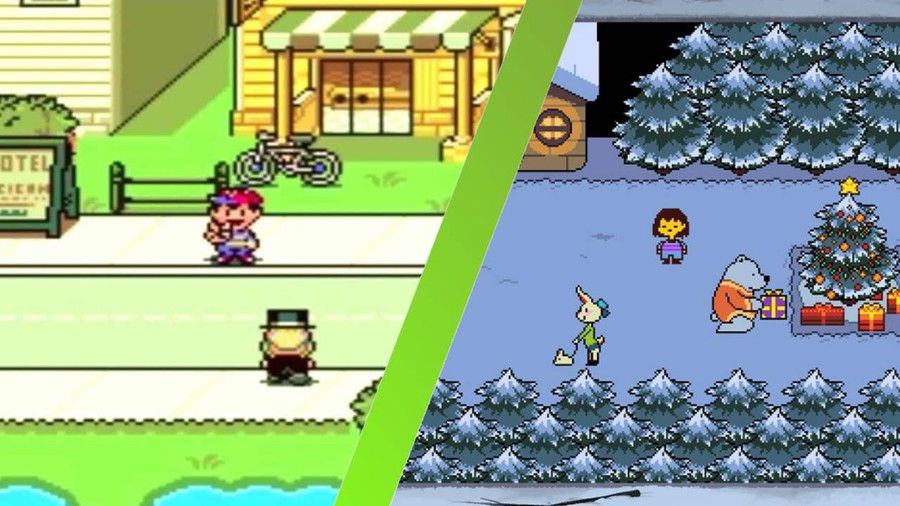
Mother, a famous NES title which was named Earthbound in the west, is one of those games people either become fans of or ignore it. It’s an RPG where a group of kids investigates strange events occurring in their town after the falling of a spaceship.
Its gameplay was innovative for the time as the developers wanted the players, even those who played more casually, to have fun and a good experience while playing it. Elements such as using an eraser to erase statues made of pencils and confrontations with unusual objects were a trademark of the title.
Initially, the game did not get the attention it deserved, since critics from the time considered the graphics too simple. Years later, with Ness’s presence in the Super Smash Bros franchise, Earthbound got its deserved recognition as one of the best games ever made.
Several years after Earthbound and with no sequels since the announcement for a Nintendo64 game which ended up never happening and even resulted in a documentary on it which can be found on the official EarthboundUSA, an independent developer started his own project: Undertale.
Playing as a kid in an underground world completing several objectives, one of the highlights of the game is the open possibilities for the player to kill, run away from or even become friends with the game’s enemies.
Toby Fox, Undertale’s developer, wasn’t a fan of traditional RPGs and wanted something new, directly influenced by Earthbound, which, according to himself, he used to play for hours on end as a child and gave him ideas which would later be introduced in his own game.
Initially, the project came from a kickstarter with a humble 5 thousand dollars as a goal, but by the end of the campaign, about a month later, it had collected over 51 thousand.
In addition to being an excellent game, a huge success among indie titles and considered a classic, it was thanks to Undertale that the Game Maker engine got updated to be able to export projects to Nintendo platforms as well, after an agreement between the company and YoYo Games (the engine’s developer) so that the games could also be played on the Switch.
8 - Suikoden - Eiyuden Chronicle: Hundred Heroes
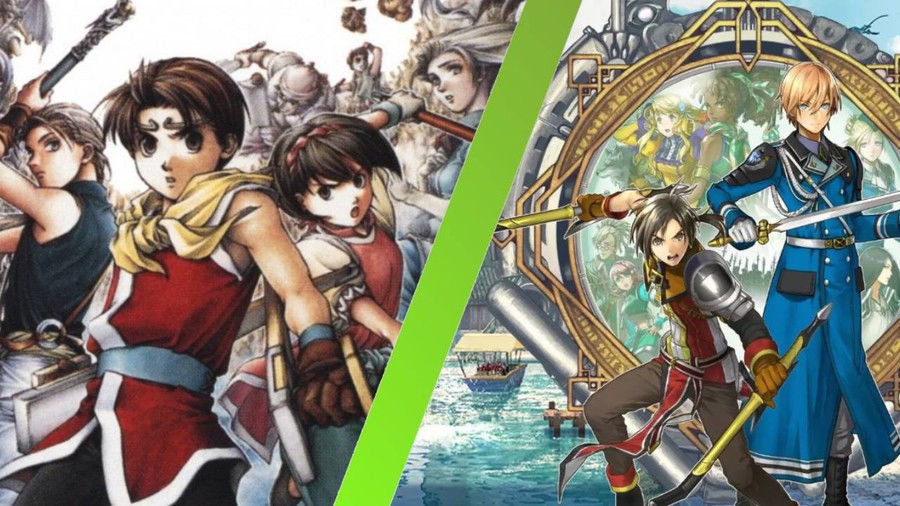
Suikoden was a very successful game in the Playstation 1 generation, but after Playstation 2, it got lost.
Fans of the franchise begged for new games, but just like other Konami titles, Suikoden ended up being left behind, with the company deciding to invest heavily in other markets.
Yoshitaka Murayama, the series creator, decided then to start a new title, giving his original creation a spiritual sequel: Eiyuden Chronicle: Hundred Heroes.
Announcing a Kickstarter campaign, just like Igarashi did with Bloodstained, Murayama managed to collect a good amount with the donations, which made it possible for him to get together a great part of the original Suikoden team to help out with the project.
The game hasn’t been released yet, but it’s already available as a pre-sale on Steam. Before this final version gets released, another game was published to give fans a taste of what they can expect from the sequel. - Eiyuden Chronicle Rising, was officially launched in 2022, with overwhelmingly positive ratings on Steam.
The game is also available on other platforms such as Nintendo Switch, Playstation and Xbox.
9 - Narbacular Drop - Portal
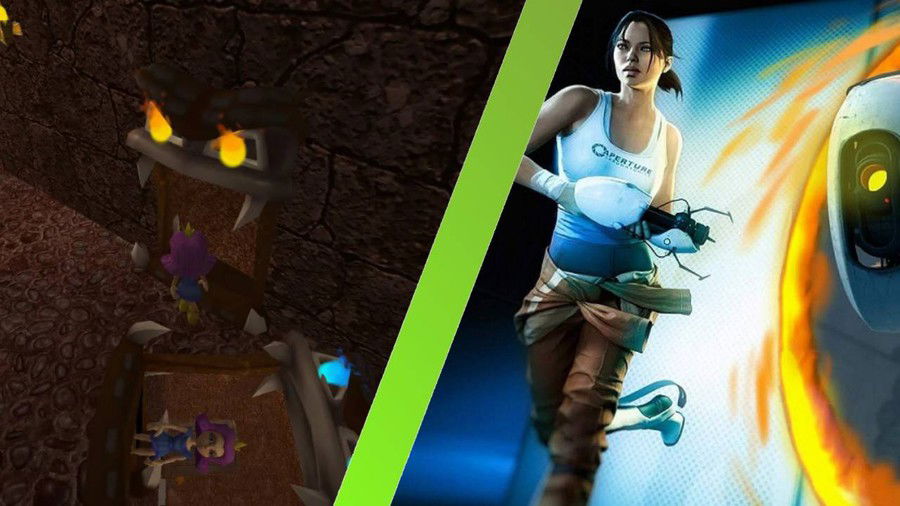
For many's surprise, Portal wasn’t the pioneer in being a puzzle game which uses portals to move around and solve them.
Being a student project from DigiPen Institute of Technology, Narbacular Drop was a puzzle game released in 2005 for free on Windows. In it, the player can position portals in non-metallic surfaces to solve said puzzles.
Gabe Newell was impressed and interested in the student’s project, and offered them a job in Valve. Now, with the company’s support, they developed the game that would go on to become a cult classic: Portal.
One curiosity about the name Narbacular is that it doesn’t exist in any dictionary, so it would help boost the game when people went looking for it in online search engines!
10 - Sweet Home - Resident Evil/Biohazard
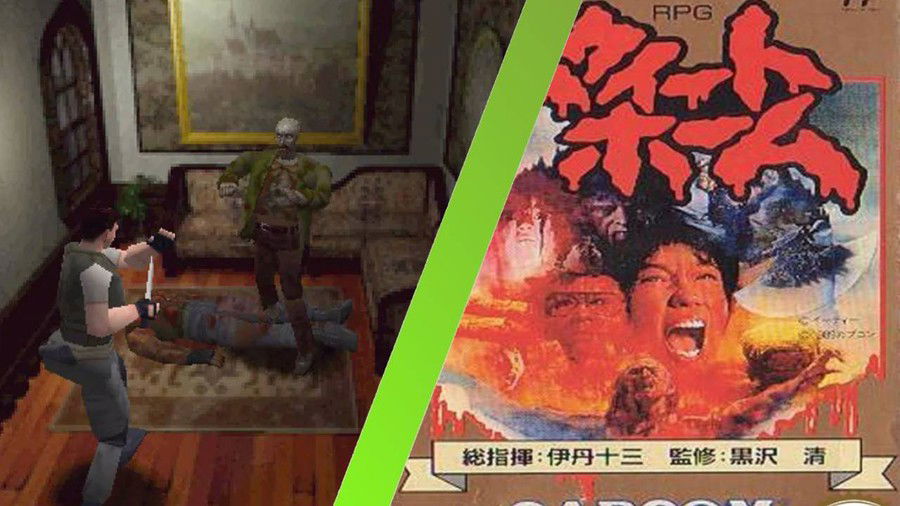
Before working with Resident Evil, Capcom had previously released a psychological horror game for the NES called Sweet Home. This title was related to a Japanese horror movie from the time.
In the game, we follow a five-person team in an adventure inside the abandoned mansion of the deceased Mamiya Ichirou. Upon their entrance, the doors close shut, and the group finds out that Mamiya haunts the place alongside other creatures.
Even though it’s an RPG, Sweet Home brought to the table several elements which were reused in Resident Evil: The mansion, a group trapped in a secluded location, each character having original skills and alternative endings, to name a few.
The similarities in ambience are such that even the loading scene with the door opening is the same in both games.
Conclusion
With this, we get to the end of our first spiritual sequels list. Did you already know these games or intend to play any of the ones mentioned here? Which game very important to you was discontinued, and you’d love a remake or reboot? (Capcom bring back Dino Crisis please!).
Take a look also at our reviews, top lists and game tips! Check out now our review about Final Fantasy VII Rebirth, A Love Letter to FFVII’s Legacy!









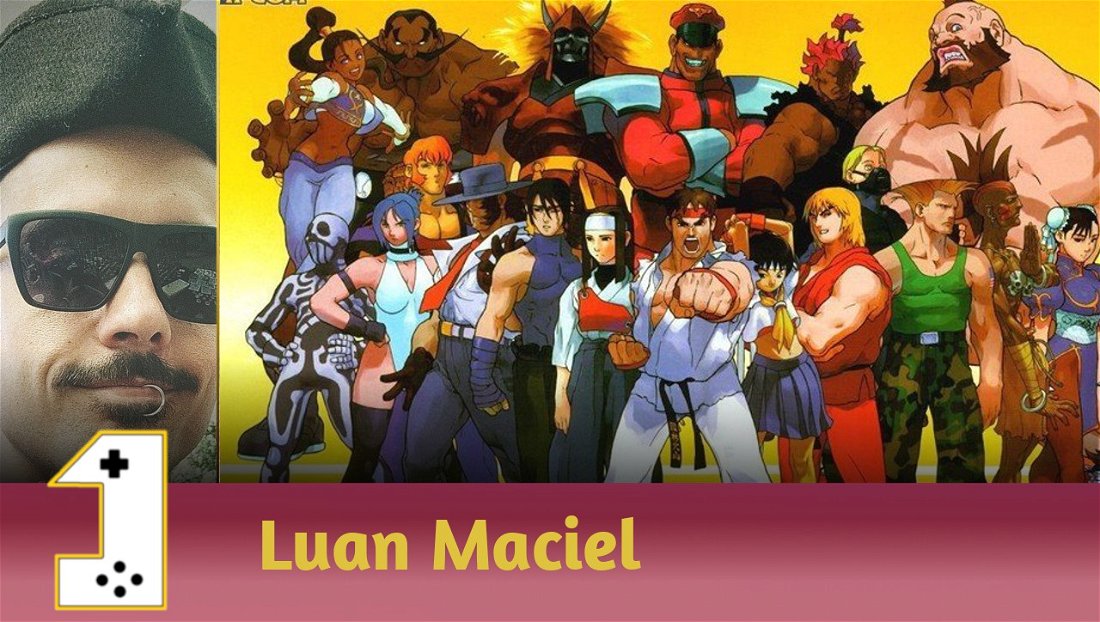
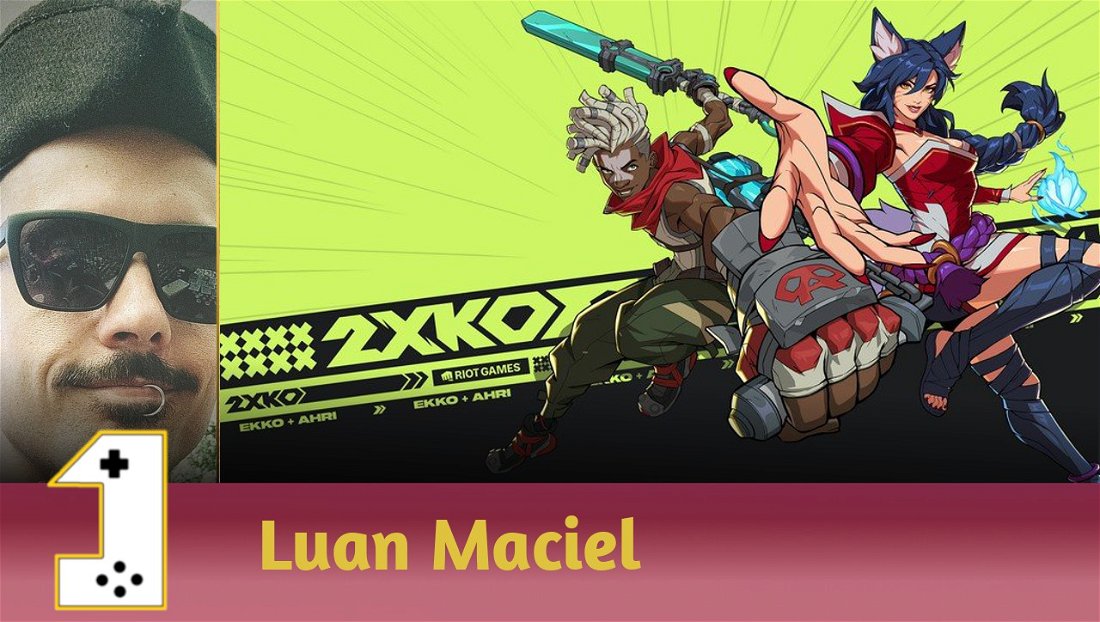

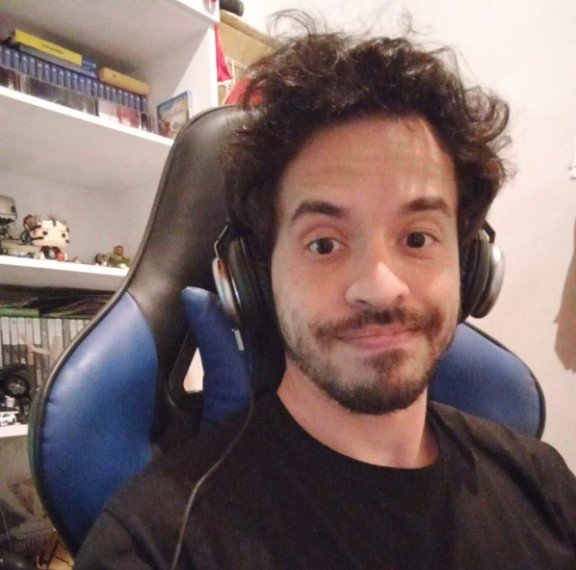

— Comments 0
, Reactions 1
Be the first to comment